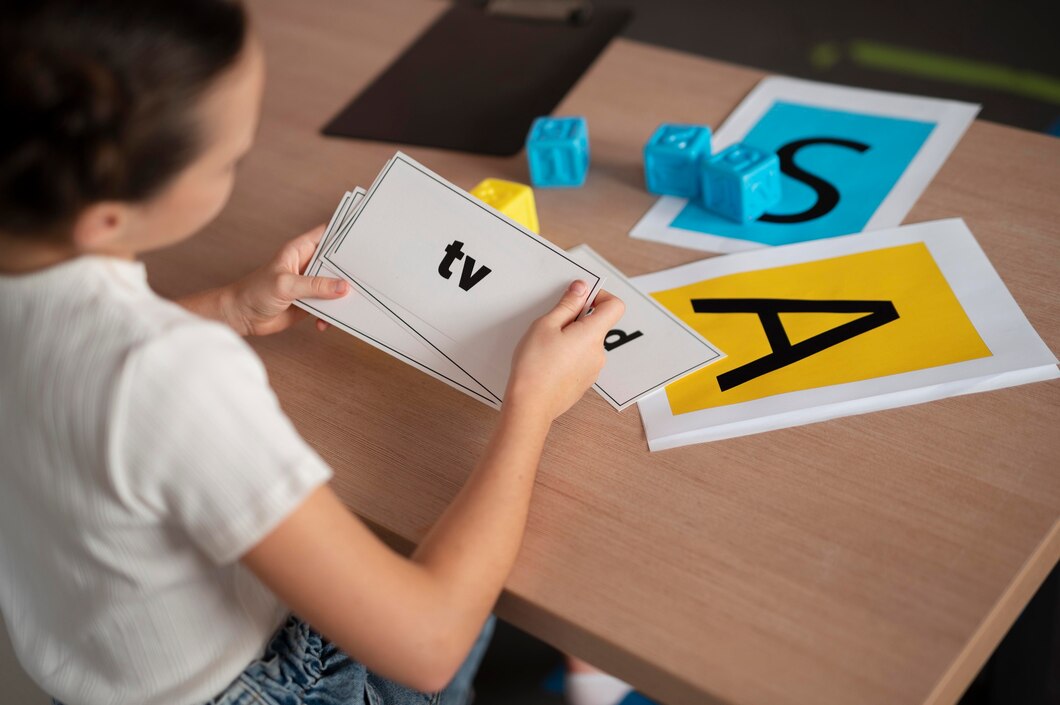Every student aims for better grades, but finding the right study method can be challenging. Flashcards are one of the most effective tools for learning and improving academic performance. With the ability to break down complex subjects into manageable pieces, flashcards engage your brain actively, helping you retain information more efficiently. This method can work wonders whether you are preparing for a test, memorizing key concepts, or reviewing for an exam. In this article, we’ll explore how using flashcards can become the path to better grades and provide strategies to maximize their potential.
Why Flashcards Are a Proven Study Tool
Flashcards have been used for generations because they engage the brain in active recall, a process where you actively try to remember information. This is much more effective than passive learning techniques like reading or highlighting because it requires your brain to retrieve information, strengthening memory retention.
Additionally, flashcards can be paired with spaced repetition, a method that involves reviewing information at increasing intervals over time. Spaced repetition ensures that you revisit material before forgetting it, which helps commit the information to long-term memory. By using both active recall and spaced repetition, flashcards allow students to master material more effectively than traditional study methods.
How to Use Flashcards for Better Grades
To maximize the benefits of flashcards, it’s important to use them correctly. Below are strategies that can help you get the most out of your flashcard study sessions:
- Keep Flashcards Simple: Each flashcard should focus on one piece of information, whether it’s a definition, formula, or concept. Avoid overloading a single card with too much information, as this makes it harder to focus on the key idea you’re trying to memorize.
- Ask Clear Questions: The questions on your flashcards should be direct and easy to understand. Vague questions make it difficult to know what you’re trying to recall, which can hinder learning.
- Incorporate Images and Diagrams: For subjects like biology, geography, or chemistry, adding visual elements such as diagrams and charts can enhance your ability to recall complex processes and terms.
- Use Both Sides of the Card Effectively: On one side, write a clear question or prompt, and on the other, write the answer or explanation. The goal is to practice recalling the answer without immediately seeing it.
Best Practices for Studying with Flashcards
Once you have created your flashcards, using them efficiently is key to getting better grades. Here are some best practices to follow:
- Review Flashcards Daily: Regular practice is crucial. Dedicate time each day to review your flashcards to reinforce what you’ve learned. Daily sessions, even if brief, are better for retention than long, infrequent cram sessions.
- Shuffle Your Decks Frequently: Avoid memorizing the order of your flashcards. Shuffling your deck keeps your brain engaged and forces you to recall the information based on the content, not the sequence.
- Focus on Weak Areas: Spend more time reviewing the cards you struggle with. This allows you to reinforce knowledge where it’s needed most, instead of repeatedly reviewing information you already know well.
Using Flashcards for Different Subjects
Flashcards are adaptable and can be used for virtually any subject, making them a versatile tool for students at all levels. Here’s how flashcards can be customized for different fields of study:
- Language Learning: Flashcards are particularly effective for memorizing vocabulary, grammar rules, and verb conjugations. You can also add audio for pronunciation practice or images to aid with context.
- Science and Medicine: Flashcards are useful for memorizing medical terms, chemical reactions, or biological processes. Visual aids like diagrams or anatomical illustrations can help with understanding complex topics.
- History and Social Studies: Use flashcards to remember key dates, figures, and events. Include not only the facts but also explanations of their significance to build a deeper understanding of the material.
Digital Flashcards: The Advantages of Using Anki
In recent years, digital flashcards have gained popularity due to their convenience and advanced features. One of the most effective digital platforms for flashcards is Anki, a flashcard app that utilizes spaced repetition algorithms to optimize your study sessions.
Anki allows you to create and organize your own flashcard decks or download pre-made decks for various subjects. The app automatically schedules reviews based on how well you know each card, ensuring you spend more time on cards that need improvement and less on cards you’ve mastered. This personalized approach saves time and enhances learning efficiency.
Anki also supports multimedia, allowing you to add images, audio, and video to your cards, making it perfect for subjects that benefit from visual or auditory learning aids. Whether you’re studying for exams, learning a new language, or memorizing complex scientific data, Anki helps streamline the process, making it easier to retain information.
Benefits of Flashcards for Long-Term Learning
Flashcards are not just for short-term memorization before a test. When used consistently, they are a valuable tool for long-term retention. By regularly reviewing your flashcards, even after you’ve mastered the material, you reinforce your knowledge and prevent forgetting over time.
- Strengthen Long-Term Memory: Spaced repetition ensures that you review material at the optimal time for retention. This moves information from short-term to long-term memory, helping you recall it more easily in the future.
- Reduce Cramming: Flashcards allow you to spread out your study sessions over time, reducing the need for last-minute cramming. This not only decreases stress but also improves your performance on exams by ensuring that you truly understand the material.
- Promote Active Learning: Flashcards require you to engage with the material actively, rather than passively reading or listening. This active learning approach leads to better outcomes and improved grades.
Incorporating Flashcards into Your Study Routine
To make the most of flashcards, consistency is crucial. Incorporating flashcard review into your daily study routine ensures that you reinforce knowledge gradually, without overwhelming yourself.
- Set Daily Goals: Decide how many flashcards you want to review each day and stick to it. By setting manageable daily goals, you make progress without feeling overwhelmed.
- Mix Old and New Cards: Start by reviewing cards you’ve previously studied, then introduce new cards to the mix. This keeps older material fresh while incorporating new concepts as you learn them.
- Take Short Breaks: Studying flashcards for long periods without breaks can lead to fatigue. Break your study sessions into 20-30 minute intervals, followed by short breaks to stay focused and retain more information.
Conclusion
Flashcards are an essential tool for students seeking to improve their grades and overall academic performance. By engaging the brain in active recall and incorporating spaced repetition, flashcards help you retain more information in less time. Whether you’re using traditional paper flashcards or leveraging digital tools like Anki, this method is both versatile and highly effective for mastering various subjects. With consistent practice and smart study habits, flashcards can become your path to better grades and academic success.
Also Read: 2022 de tik tok vergi yasası çeıktımı An In-Depth Analysis



